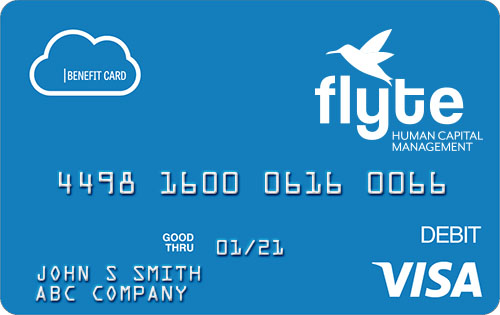Flexible Spending Accounts
or FSAs for short, allow employees to set aside part of their wages on a pretax basis to pay for specific out-of-pocket costs. Not only does this type of spending account help employees save for medical, childcare, and other approved expenses that insurance doesn’t pay for, but it also lowers their annual taxable wages.
“[example] We are absolutely delighted with our experience with Flyte HCM. We can’t recommend your company often enough to other employers. Your customer service and organizational culture are rare and special. Your team members are smart and engaged. They are tech-savvy with the interface and answer all of our questions handily. Thank you for being a critical part of our firm’s dream team.”

WHAT ARE THE DIFFERENT TYPES OF FSA?
Many believe an FSA is for Dental and Vision only, but it does so much more…
- Health FSA
- Dependent Care FSA
- Limited Scope FSA
- Commuter FSA
- Cafeteria FSA
- Premium Pretax Only Plan

Healthcare FSA
- Covers qualified medical, dental, and vision expenses for you, your spouse, and your dependents including office visits, prescription copays, prescription eyeglasses, contact lenses, Orthodontics, chiropractic care and more.
- $3,200 annually per household as of January 1st, 2024.

Limited Scope FSA
- A supplemental FSA when an employee is already contributing to a Health Savings Account (HSA).
- Covers dental and vision expenses only; health expenses are excluded
- $3,200 annually per household as of January 1st, 2024.


Dependent Care FSA
- Covers expenses such as daycare, before and after school care, nursery school, preschool, summer day camp, elder care, disabled dependent and/or spouse care.
- $5000 annually per household

Commuter FSA
- Covers parking, mass transit fees and commuter highway vehicle (vanpool) costs for the purpose of traveling from home to the workplace.


Cafeteria Style FSA
Healthcare Flexible Spending Accounts (FSA) are healthcare accounts that allow you to use tax-free money to pay for eligible medical expenses. Setting aside money annually toward these expenses assists in lowering your taxable income through a payroll deduction. You will have access to the full elected annual amount on day one of your plan year.

Premium Only Pretax
Allows employers to pay for qualified transit and parking expenses with tax-free funds. Examples of qualified reimbursements for a transportation account include transit passes, vouchers, fare cards, tokens, or vouchers for mass transits.

Frequently Asked Flexible Spending Account Questions
Flyte HCM provides benefit and claim administration services for your Flexible Spending Accounts. Email Flyte at memberservices@flytehcm.com or call 952.746.0000.
Employers have the option to allow Health FSAs to rollover up to $640 per plan year. Employers are not required to offer the rollover and could limit the amount to less than $640.
Funds will be available as they’re deducted during payroll and contributed to the plan.
Expenses that are eligible for reimbursement are determined by IRS Code Section 213(d). Coverage varies by plan, but a few examples of ineligible expenses include:
- Insurance premiums
- Health maintenance fees
- Cosmetic surgery
- Personal use healthcare items
- Exercise programs for general health
- Expenses that have been previously reimbursed.

Services
Company
